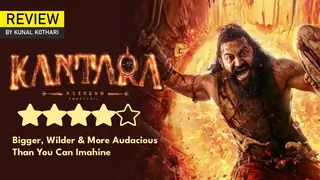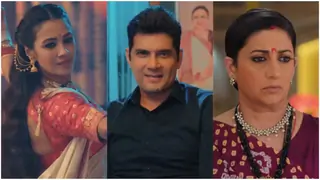I was not able to give individual replies or like the posts in which many of you raised several excellent points due to a severely malfunctioning internet connection. I hope my friends will understand why I suddenly vanished away after starting the discussion post. I'm giving my views on the same below. I hope they add to whatever you friends have already discussed.
'History' is generally defined as a study of the past while 'fiction' is regarded as a type of literature that describes imaginary people, events and stories connected to them. Our major problems arise when we try to bring both these terms under a common umbrella as we do while discussing 'historical fiction'.
When we are attempting to fictionalize the people, conditions, or events which actually existed, it is almost like walking the tight rope over a mine field. We do have several records and accounts of what happened in the past. At the same time there are several things which are either unsaid, incomplete, false, exaggerated, or numerous contradicting versions of the same person or event depending upon the perspective of the historian who has written it or the nature of the historical record, when we deal with historical time periods and personages far removed from the modern time periods.
Let us simply call them gaps in history. So when any writer tries to fictionalize that period, they imaginatively try to fill these gaps and give us the full story in a logical, sequential and chronological fashion. But this approach in itself has several loopholes because when you give a writer the freedom to invent details which are missing, they tend to invent and write more than actually needed.
It is one aspect of the human tendency that we fail to see things as they are. We try to color them with the lenses we would love to see. So for example if it was a romantic at heart who was fictionalizing an ancient personage and his life, he/she would be more interested in depicting the romantic angle of that person excluding all possible other angles that actually exist in history. Sometimes it even goes to the extreme of inventing newer and newer details which are far from reality. The writer's story assumes precedence over the actual history. He/she is writing his-story under the guise of history.
Just take the example of ballads and folk songs. Many a time while they give us a good picture of the past, they also end up misleading us by incorporating the views and opinions of the author into something that is supposed to be 'history', or a truthful account of the past. Similarly, the winning side, the majority opinion or accounts often overpower the losing side, minority opinion or accounts by the sheer power of their numbers. And over a period of time, we lose track of them and end up believing that this is the real' history while this perhaps happens to be just one side of the coin.
CAS falls into many of the pitfalls I described above while bringing to life the story of Chakravartin Samrat Ashok. There are many things we know about him from the historical books and records of that time, the accounts of travelers and envoys from other countries, and most important of all, Ashok's very own rock edicts.
The right approach in recreating his life would have been to do a very extensive research of available information and build upon it. But it does not seem to have been a very interesting approach in the eyes of the makers of the show. They would have felt that it was more like producing a documentary than a historical fiction show. So they took the easy way out writing their own history in the show.
But I feel that when there is enough drama in actual history itself, where is the need to either falsify it or tamper with it while making or producing a historical fiction show? Chakravartin Samrat Ashok's life and times are in themselves very interesting and intriguing. So they do not need all these superfluous elements, additions, omissions and misleading elements to make it an even more interesting watch. At times, these plot devices end up overruling the actual plot. These happen to be my views on CAS and recreation of history.
One of the best works I remember even today in this genre is the telugu historical fiction novel, Kadimi Chettu by the great Telugu writer, Vishwanatha Satyanarayana on the life and times of Mauyura Sarma the founder of the Kadamba dynasty. Not many of you must have even heard of it. It is a very great classic in Telugu. I don't know if translations of it are available or not.
It was my father who read it to me when I was very small. I was literally rapt in attention at the portrayal of those times, the story and the intriguing characterization of both the protagonist and antagonist, for that matter even the minor ones. The description of the war scenes and the strategies of war, the game of one upmanship, the political intrigues of those times, etc had me spell bound. There was nothing out of place or irrelevant to the story.
The adrenaline pumping climax of how the hero defeats his enemy Bhalatha Varma who is many times more powerful than him in brute strength by tiring him out and playing the waiting game in the final one-to-one struggle with his stamina and agility literally had me clapping. When I started seeing CAS, this was the kind of stuff I wanted to see in the show though I was not averse to having a bit of romance thrown here and there provided it does not hinder or drag the overall story, a bit of human and personal touch sort of thing in the story of a great emperor. But looking at the present story, I fail to make out where it is going both as a history and as a romance.
Edited by shailusri1983 - 9 years ago






























